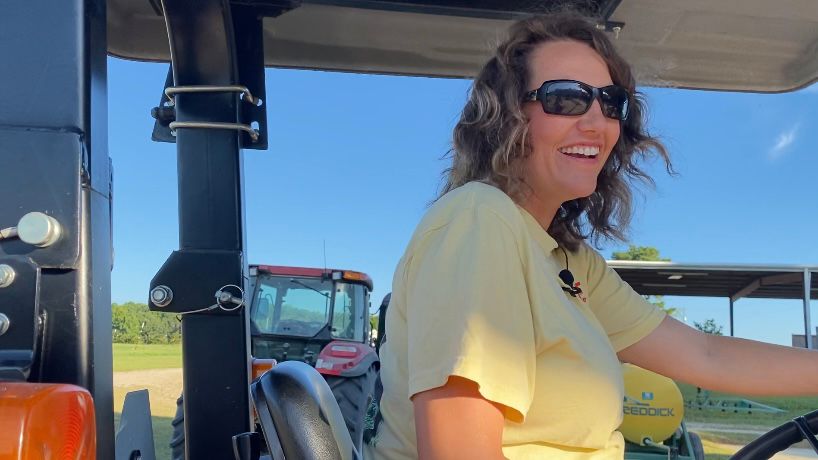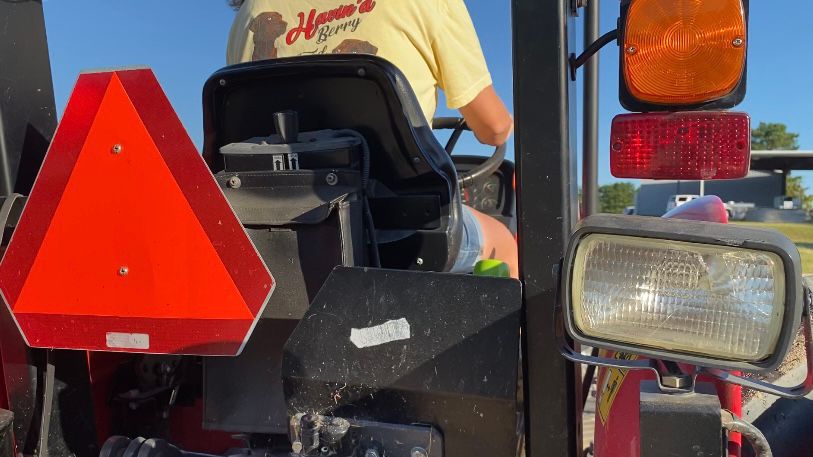JOHNSTON COUNTY, N.C. — Pack some patience and keep your eyes peeled this fall for slow-moving farm equipment as farmers harvest crops.
What You Need To Know
- Driving a tractor on the road is legal but often highly stressful for farmers
- Most farm equipment doesn't go faster than 35 mph at top speed
- There are more than 200 vehicle-equipment accidents each year in North Carolina
North Carolina's farmers work hand-in-hand with the Department of Transportation to ensure that as they move from field to field to get their job done, they're impacting your commute as little as possible. But driving equipment on the road is more than just a slowdown for drivers, it's knowingly stepping into harm's way for the operator of the machinery.

Michelle Pace Davis, a sixth-generation farmer at Pace Family Farms, shared a few of the emotions that run through her head whenever she's in the driver's seat of a tractor on the road.
“We're constantly on that defense of what is the car we're meeting going to do. Are they going to slow down and maybe get over a little bit or is the car behind us going to be very grateful and wait until there's a prime opportunity to pass, because we're not going to try to hold up traffic to hold up traffic,” Pace Davis said.
Their family's farm used to be located in a rural area that has become an ever-growing suburb in recent years. The number of cars on the roads surrounding their fields is only increasing with time.
“Traffic has considerably increased, which is a major concern for us when moving slow-moving vehicles, such as a tractor on the road where the speed limit is 45 and 55, and all of a sudden having to go down to 25 miles an hour,” Pace Davis said.
She said they do attempt to post signage warning drivers of equipment in the area if they know they'll be working in a particular field. All of their equipment also has warning lights and hazard triangles to catch drivers' attention, but Pace Davis said an added risk comes when they're pulling something like a mower, which may not be as visible to a driver.

“Part of being able to safely do our job is having those larger pieces of equipment on the road,” Pace Davis said. “We have all the safety equipment already on the tractors, flashing lights, safety signs and triangles. Sometimes depending on the traffic or time of day we'll have a leader or a follower.”
They actually started having a tractor day once a year where the public can come out to the farm, see all their equipment, climb on it and ask any questions they may have.
“There's noise, there's smells, there's sights, there's sounds — all of that that comes with having working farmland and also that includes having tractors on the road,” Pace Davis said.
Agriculture is North Carolina's top industry, but that means drivers must adapt to the fact that tractors and other equipment will use our roads to “commute” to work.
“Slow down. Just take five minutes, just relax, listen to the radio, have a jam out session,” Pace Davis said. “Whether you're the one on the tractor or the one in the car, everyone wants to come back home to their family.”



